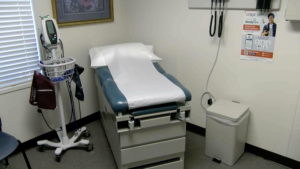BROWNSVILLE – The City of Brownsville’s Department of Health, Wellness and Animal Services’ Vector Control Division is actively working on mitigating mosquito-borne diseases in a high-risk zone like the Rio Grande Valley.
“We’re one of the few areas in the country that’s had Zika virus and Chikungunya and Dengue viruses and West Nile virus to name a few,” UTRGV Professor Christopher Vitek said.
Medical Entomologist and Vector Control Supervisor Yaziri Gonzalez talked about the chemicals in the spray, adding it only works while its mist is in a cloud-like state.
She said frequently spraying an area with the same pesticide creates a problem, mosquito resistance to the spray, a problem already seen in the Miami-Dade area.
“So, it’s an organophosphate […] So, what that means is that we’re targeting the mosquito from different points right we’re not just attacking the nervous system or attacking something else right, so we need those two blends in order to avoid the possibility of resistance,” Gonzalez said.
Gonzalez said to prevent mosquitoes from resisting the chemicals, the department changes the pesticide every one to two years.
She added there are not many chemicals available to control the mosquitoes population, and restrictions set by the U.S. Environmental Protection Agency create spraying limitations.
“[…] We have one called the Bio mist and that’s a Permethrin,” Gonzalez said. “That targets mosquitoes in the sodium ion channel. Then we have another chemical called mosquito master and that’s dual and that one is also Permethrin.”
Gonzalez said the department sprays five to seven days after heavy rain to help eliminate mosquito larvae.
The City of Brownsville will have a grand opening for its new mosquito lab on Oct. 8 and will be open to the public.
Reporter – Selene Bocanegra Tizapan





